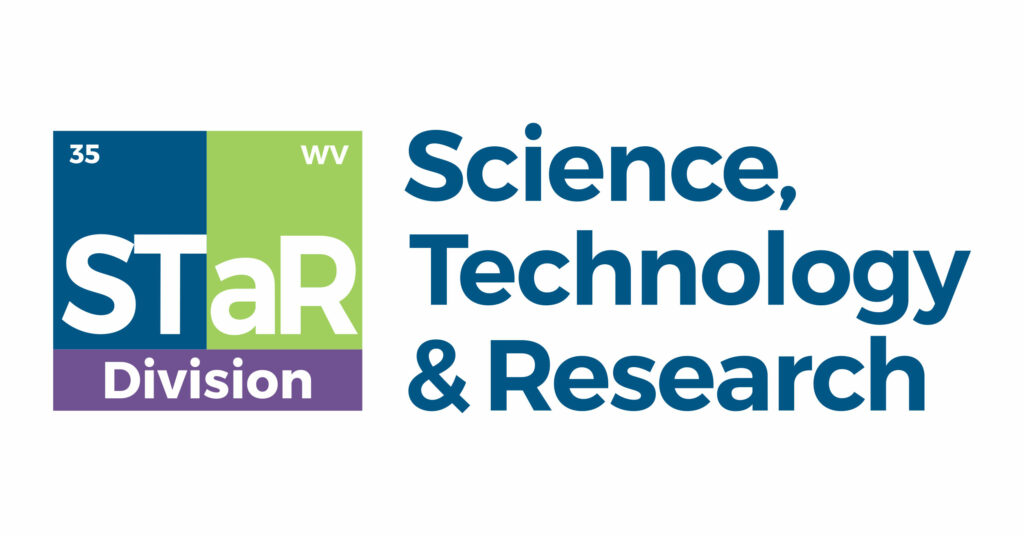Faculty at eight West Virginia colleges and universities soon will receive $166,000 in state grants to purchase scientific equipment and enhance student opportunities and research on their campuses.
The Science, Technology & Research (STaR) division of the West Virginia Higher Education Policy Commission (Commission) awarded two Innovation Grants and seven Instrumentation Grants to purchase modern instrumentation and enhance study in science, technology, engineering, and mathematics (STEM). Innovation Grants fund scientific equipment, curriculum improvements, minor renovations, and classroom instruction. Instrumentation Grants purchase scientific equipment for advanced undergraduate teaching laboratories and research to encourage students to pursue STEM careers.
“STaR is pleased to assist our higher education institutions with the purchase of crucial scientific equipment that will help undergraduate students prepare for their careers,” said Dr. Juliana Serafin, senior director of STaR. “This equipment is also critical for research at these institutions.”
Instrumentation and Innovation Grants are primarily supported by the Research Challenge Fund, established by the West Virginia Legislature in 2004 to build research capacity and competitiveness at the state’s colleges and universities. It is managed by STaR and matching funds are usually provided by the college or university to increase the size of the award.
Innovation Grant Awards
Drs. Stuart Cantlay and Joseph Horzempa, Department of Biomedical Sciences at West Liberty University, were awarded $26,400 for “Enhancing the Teaching of Epi-fluorescence Microscopy.” They will use the funds to upgrade an existing microscope into a fully automated one. In addition to the microscope being used for research and teaching, students trained in these techniques will learn valuable skills for employment in STEM fields.
Drs. Nathan Galinsky, Zhang Sihe and Bernhard Bettig, engineering faculty at West Virginia University Institute of Technology (WVU Tech), were awarded $20,000 for “Process Control Teaching System: Development of Process Control Curriculum.” Process controls use mathematical principles and inputs/outputs to a process to help generate a desired product or result in a safe, reliable manner. The process control teaching system can be used throughout engineering curriculum and in high school summer programs to help demonstrate industrial processes to prospective engineering students.
Instrumentation Grant Awards
Drs. Luke Huggins, Bruce Anthony, Melanie Sal, Caleb Gibson and Matthew Reid, faculty in the Department of Biology at West Virginia Wesleyan College, were awarded $20,000 for a “Fluorescence Deconvolution Microscope.” They will purchase a portable microscope and image analysis system designed for producing quality fluorescence micrographs. The microscope and software will provide a robust and easy-to-use system designed to perform 2D and 3D deconvolution of cells to train students on state-of-the-art equipment not usually available at small primary undergraduate institutions.
Drs. Eyas Mahmoud and Mahinda Ranasinghe, from the Departments of Chemical Engineering and Chemistry at West Virginia State University, received $8,200 for “Acquisition of Reactor.” The chemical reactor will be used in the chemical engineering and organic teaching laboratories as well as to conduct student research in fuels and value-added chemicals production and organic synthesis of natural products.
Drs. Charan Litchfield, Mingyu Lu, Thang Bui and Somenath Chakraborty, all from the Departments of Electrical and Computer Engineers or Computer Science and Information Systems at West Virginia University Institute of Technology (WVU Tech), were awarded $19,700 for “An Experimental Testbed of Internet of Things.” They will build an experimental testbed of Internet of Things based on the radio frequency identification technology that would include 10 programmable wireless nodes and 40 RFID. WVU Tech students and Raleigh County Schools students will use the testbed.
Dr. Jay Badenhoop, professor of chemistry at WVU Potomac State College, was awarded $12,900 for “Chemistry Lab Modernization through Instrumentation.” A Perkin-Elmer Fourier Transform Infrared (FTIR) Spectrometer with software and laptop will be purchased. The spectrometer will greatly enhance the quality of the laboratory experience, and the training of PSC students.
Dr. Jamie Miller, assistant professor of biology at Fairmont State University, was awarded $20,000 for “Increasing Educational and Research Capabilities with Multi-Mode Microplate Reader.” She will purchase a multi-mode plate reader instrument to replace an outdated instrument. The multi-mode capabilities afford flexibility and utilization across a broad range of applications.
Dr. Matthew McKinney, assistant professor in the Department of Health, Science, Technology, and Mathematics at Alderson Broaddus University, was awarded $19,200 for “ABU Water Quality Equipment.” He will purchase a multiparameter sonde for use in classroom instruction, as well as in student-driven undergraduate research projects focusing on biomonitoring and water quality.
Dr. John Taylor, assistant professor of chemistry at the University of Charleston, received $20,000 for “Acquisition of a Fourier Transform Infrared Spectrometer (FT-IR) for the Teaching of Spectroscopic Fundamentals and Undergraduate Research.” He will purchase a Perkin Elmer Spectrum Two Fourier transform infrared spectrometer so that students can identify infrared active chemical compounds and functional groups, learn about spectroscopic fundamentals, and apply the technology to undergraduate research projects.
